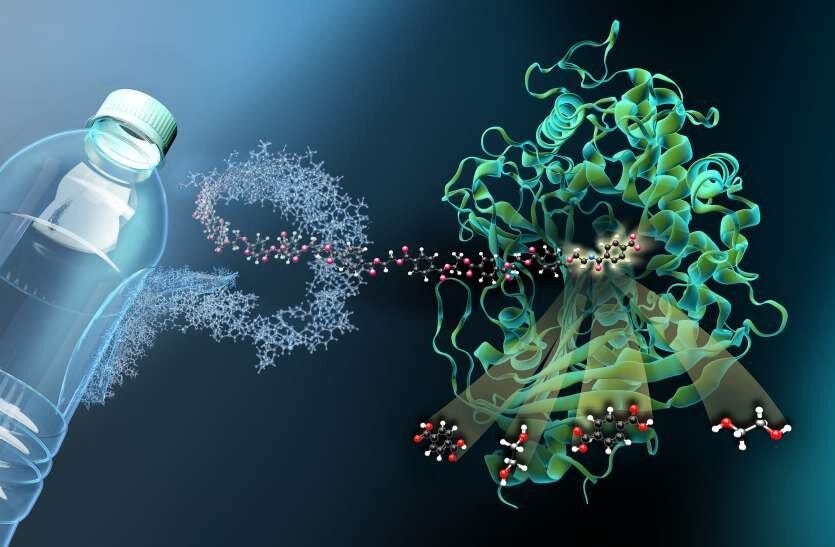Plastic-Eating Enzymes
Written by Aanya Deshpande
Problem:
Since so much plastic waste is left floating in the ocean, it slowly releases harmful greenhouse gases into the atmosphere as it breaks down. Burning plastic also contributes to the spreading of greenhouse gases in the air. Activities like this can spread toxic fumes such as dioxins, mercury, etc. All of the plastic waste tossed into the ocean, or burned, can threaten the life of humans, vegetation, and animals.
PET:
PET, also known as polyethylene terephthalate is this project’s main purpose. PET is a significant polymer found in plastic packaging. It is also the most frequently used in fibers for clothing, manufacturing, etc. This polymer makes up 12% of global waste. Scientists used a machine that creates mutations to a natural enzyme called PETase. PETase allows bacteria to degrade PET plastics. According to scientists at the Cockrell School of Engineering and College of Natural Sciences, five different polyester fibers, and water bottles, which were all made out of PET, all had the effectiveness of the enzyme, FAST-PETase (functional, active, stable, and tolerant PETase). With FAST-PETase, the process of depolymerization and repolymerization can be performed at any temperature up to 122ºF, or 50ºC, so it can be used anywhere, at any time.
Overview of Solution:
A plastic-eating enzyme is a globular protein that can break down environmental plastic. These enzymes break down plastic by chemically breaking down plastic completely and chemically putting it back together. This process is known as depolymerization and repolymerization. With this new enzyme variant, plastic takes only a couple of days to break down instead of decades or centuries. However, the plastic-eating enzymes can not get rid of plastic altogether. Instead, it can convert plastic back to its original elements, and with polymerization, it can be used to make clean, recycled plastic.
References
https://www.globalcitizen.org/en/content/plastic-bottle-waste-eating-enzyme-mutant/
https://scitechdaily.com/plastic-eating-enzyme-could-supercharge-recycling-and-eliminate-billion s-of-tons-of-landfill-waste/
https://www.weforum.org/agenda/2022/01/plastic-pollution-climate-change-solution/
Written by Aanya Deshpande from MEDILOQUY


